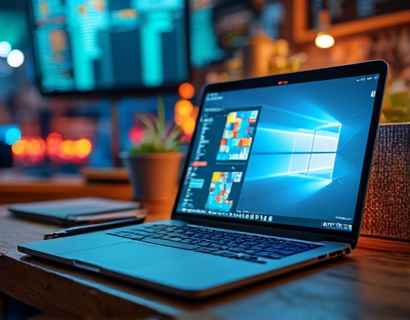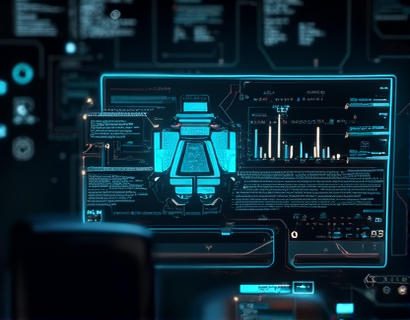Decentralized File Management: Transforming Business Collaboration
In the digital age, efficient and secure file management has become a cornerstone for business collaboration and productivity. Traditional centralized file management systems often face challenges such as single points of failure, security vulnerabilities, and inefficiencies in access control. An innovative approach to addressing these issues is the adoption of decentralized file management solutions. These solutions leverage blockchain technology and distributed networks to create a more robust, secure, and efficient environment for teams to collaborate and manage files.
Understanding Decentralized File Management
Decentralized file management refers to a system where files and data are not stored on a single server or centralized location but are distributed across a network of nodes. This distribution ensures that no single entity has control over the entire system, reducing the risk of data breaches and enhancing overall security. Each node in the network maintains a copy of the data, which is synchronized through a consensus mechanism, ensuring data integrity and availability.
The core principle behind decentralized file management is to eliminate the need for intermediaries, such as cloud service providers, which can introduce latency, cost, and potential points of failure. By removing these intermediaries, businesses can achieve faster file access, lower costs, and greater control over their data.
Benefits of Decentralized File Management
The transition to decentralized file management offers numerous advantages for businesses and teams. One of the most significant benefits is enhanced security. Since data is distributed across multiple nodes, the risk of a single point of failure is minimized. Even if one node is compromised, the data remains safe on other nodes, making it extremely difficult for hackers to gain unauthorized access.
Another key advantage is improved collaboration. Decentralized systems provide a seamless and user-friendly interface for team members to access, share, and collaborate on files in real-time. This real-time access ensures that everyone is working with the most up-to-date information, reducing the chances of errors and miscommunications.
Decentralized file management also promotes data sovereignty, allowing businesses to maintain control over their data without relying on third-party providers. This control is crucial for compliance with data protection regulations such as GDPR and HIPAA, ensuring that sensitive information is handled according to legal requirements.
Technological Foundations
The technology driving decentralized file management is rooted in blockchain and distributed ledger technology. Blockchain provides a transparent and immutable record of all transactions, ensuring that file access and modifications are traceable and verifiable. Smart contracts, self-executing contracts with the terms directly written into code, can automate file sharing and access control, reducing the need for manual interventions and increasing efficiency.
Distributed Hash Tables (DHT) are another critical component of decentralized file systems. DHTs enable efficient data retrieval by mapping file hashes to specific nodes in the network, ensuring that files can be located and accessed quickly, even as the network scales.
Implementing Decentralized File Management
Implementing a decentralized file management system involves several steps to ensure a smooth transition and optimal performance. First, businesses need to assess their current file management processes and identify the specific needs and requirements for the new system. This assessment should consider factors such as the volume of data, frequency of access, and compliance requirements.
Next, selecting the right decentralized platform is crucial. There are several open-source and commercial solutions available, each with its own set of features and capabilities. Factors to consider when choosing a platform include scalability, security, user interface, and integration with existing systems. Some popular decentralized file management platforms include Filecoin, Storj, and InterPlanetary File System (IPFS).
Once a platform is selected, the implementation process involves setting up the network, configuring access controls, and migrating existing files to the decentralized storage. It is essential to train staff on the new system to ensure a smooth adoption process. Providing comprehensive documentation and support can help address any challenges that may arise during the transition.
Enhancing Collaboration with Decentralized File Management
One of the most transformative aspects of decentralized file management is its impact on team collaboration. Traditional centralized systems often lead to version control issues, where multiple team members may work on the same file simultaneously, resulting in conflicts and data loss. Decentralized systems resolve this by allowing multiple versions of a file to coexist, with each version being timestamped and traceable.
Real-time collaboration is another significant benefit. Team members can access and edit files simultaneously, with changes being reflected instantly across the network. This real-time synchronization eliminates the need for constant file sharing and merging, streamlining the workflow and boosting productivity.
Decentralized file management platforms often include built-in communication tools, such as chat and commenting features, which facilitate seamless communication within teams. These tools ensure that discussions related to specific files remain organized and accessible, further enhancing collaboration.
Ensuring Security in Decentralized File Management
Security remains a top priority in decentralized file management. While the distributed nature of these systems inherently increases security, additional measures can be implemented to further safeguard data. Encryption is a fundamental security feature, ensuring that files are unreadable to unauthorized users. End-to-end encryption can be used to protect files from the moment they are uploaded to the network until they are downloaded by authorized users.
Access control is another critical aspect of security. Decentralized platforms can implement role-based access control (RBAC) to define who can view, edit, or delete files. Smart contracts can automate these access controls, ensuring that only authorized users can perform specific actions on the files.
Regular audits and monitoring of the network can help identify and mitigate potential security threats. Decentralized platforms often have transparent audit logs, allowing businesses to track file access and modifications, providing an additional layer of accountability and security.
Case Studies and Real-World Applications
Several businesses and organizations have successfully adopted decentralized file management solutions, achieving significant improvements in collaboration and security. For instance, a global software development team used a decentralized platform to manage their codebase, resulting in a 30% reduction in development time and a 40% decrease in version control conflicts.
A healthcare organization implemented a decentralized file management system to store patient records, ensuring compliance with HIPAA regulations. The system provided secure, real-time access to patient data for multiple departments, reducing the risk of data breaches and improving patient care.
Another example is a financial services firm that transitioned to a decentralized file management solution to enhance data sovereignty and reduce reliance on third-party cloud providers. The firm reported a 50% reduction in data storage costs and a significant improvement in data access speeds.
Challenges and Considerations
While the benefits of decentralized file management are clear, there are several challenges and considerations that businesses should be aware of. One of the primary challenges is the initial setup and migration of existing files to a decentralized system. This process can be complex and time-consuming, requiring careful planning and execution.
Another consideration is the learning curve associated with adopting new technology. Staff may need training to effectively use the decentralized platform, which can involve a temporary decrease in productivity. However, the long-term benefits in terms of efficiency and collaboration typically outweigh these initial challenges.
Scalability is also an important factor, especially for businesses with large volumes of data. While most decentralized platforms are designed to scale, it is essential to evaluate the platform's capabilities to ensure it can handle the business's growth and data demands.
Future Trends in Decentralized File Management
The future of decentralized file management is promising, with ongoing advancements in blockchain technology and distributed networks. One trend is the integration of decentralized storage with artificial intelligence (AI) and machine learning (ML) to enhance data management and analytics capabilities. AI can help optimize file organization, predict access patterns, and automate routine tasks, further improving efficiency.
Another trend is the development of cross-platform interoperability, allowing different decentralized systems to work together seamlessly. This interoperability will enable businesses to choose the best tools for specific tasks without being locked into a single ecosystem.
As regulatory frameworks evolve to address the unique aspects of decentralized technologies, we can expect to see more standardized practices and guidelines, making it easier for businesses to adopt these solutions with confidence.
Conclusion
Decentralized file management represents a significant shift in how businesses and teams handle file storage, access, and collaboration. By leveraging blockchain and distributed network technologies, these solutions offer enhanced security, improved collaboration, and greater control over data. While the transition to a decentralized system requires careful planning and consideration, the long-term benefits in terms of efficiency, security, and cost savings make it a compelling choice for modern businesses.
As the technology continues to mature and more organizations adopt decentralized file management, we can expect to see a new era of collaborative and secure business operations.











































